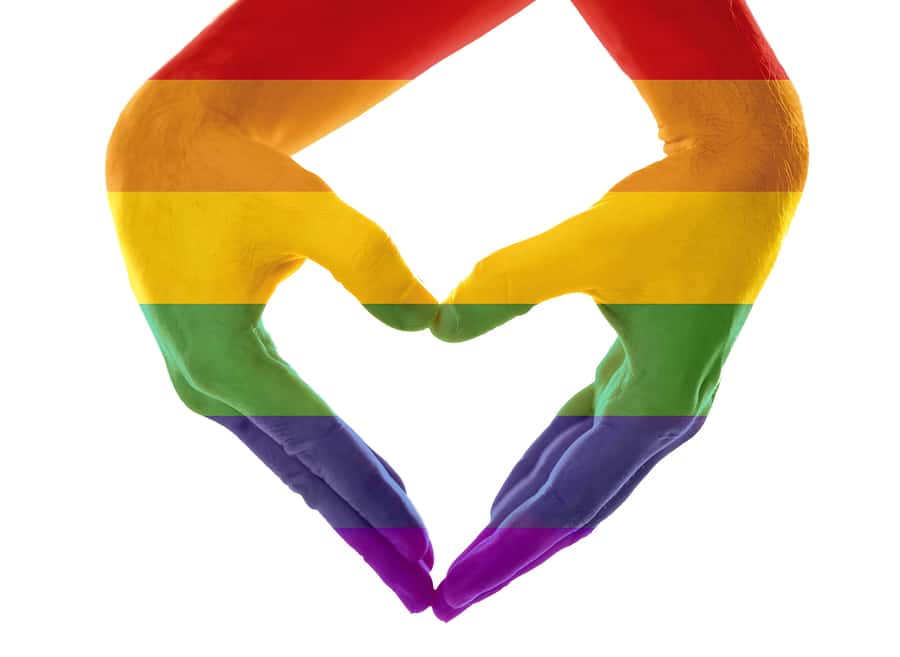 When kids get bored, they can easily get into trouble. That’s why “go outside and play” is one of the more common phrases parents use. For kids, play is an opportunity to get centered, learn new things, and have fun in a constructive way. But for adults, the word “play” has come to mean something entirely different.
When kids get bored, they can easily get into trouble. That’s why “go outside and play” is one of the more common phrases parents use. For kids, play is an opportunity to get centered, learn new things, and have fun in a constructive way. But for adults, the word “play” has come to mean something entirely different.
“I don’t play games,” says the woman trying to appear drama-free.
“I’m not a player,” says the man who wants to earn her trust.
“Play” for grown-ups sounds like the opposite of fun. But what if I told you that play can actually save your relationship? What if “acting like a child” made your grown-up problems easier to cope with?
Playing together might be the most mature decision you’ve make all day!
Too often, long-term couples smother themselves (and each other) by falling into boring routines. We work, we go home, eat dinner and watch the news, go to sleep, repeat. There’s simply no time for anything else. So we worry we aren’t having sex enough, or talking about our feelings enough. We talk ourselves out of intimacy, and it’s exhausting.
My favorite antidote for worry is play. Once play becomes a priority, sex and conversation might actually come easier. We all want less frustration and more intimacy. We’d all be happier with fewer wasted moments and more time together. You don’t have to wait for vacation. You can play where you are, right now.
Play is easy, it’s quick, and it’s free. There are a million ways to do it.
When you wake up in the morning, take 5 minutes for a cuddle party. Laugh at your puffy faces and messy hair. Race each other to the bathroom, and have a toothbrush karaoke party. Just be ridiculous. You might feel stupid at first, but that’s what play is: being goofy together, on purpose.
A serious relationship doesn’t actually have to be “serious” 24/7. Happiness doesn’t always appear on its own, so we play to manifest joy.
Challenge each other to do celebrity impressions in the shower. Try making something weird for breakfast. Do ten minutes of Kundalini yoga together – if you don’t know what that is, find a video on Youtube. Those breathing exercises can be pretty hilarious.
Embrace your childlike sense of humor. We may all be adults here, but none of us have to be old.
In the evening, make dinner together and pretend you’re on a cooking show. While you’re eating, ask each other to share embarrassing stories. And if you must watch something, make a game of that, too. My husband and I sometimes take turns picking Youtube videos, and it’s actually super fun! Any cool music you’ve heard, lately? How about the latest viral cat videos? Share the things that make you feel young, goofy, and alive together.
A silly game we like to play is something I call Mystery Records. You know those bins of $1 old records in thrift shops? I like to pick a few artists I’ve never heard of (cheesy matching sweaters on the album cover are definitely a plus), and then play them at home. This makes for some really random dance parties in our living room.
Feel free to create your own silly games. Maybe you could try inventing bizarre recipes using only what you have in your kitchen. Or you could assemble some ugly, dorky outfits and recreate some ‘awkward family photos’ in your dining room. Being weird together is infinitely more fun than being bored or stressed together.
Play doesn’t always require energy. Don’t feel pressure to be ‘fun’ all the time. Sometimes, we’re tired – and that’s okay.
At night, try putting your phones down and talk about things that make you happy. If you’re feeling passionate about a new project, say so! If your partner is doing a great job at work, congratulate them. Share the dumbest jokes you’ve heard all week. Talk yourselves to sleep about the things that make you smile.
Today, if you find yourselves talking in circles about whatever’s bothering you, take a pause for play. This doesn’t mean ignoring your problems; it’s just making them easier to approach later. There are a multitude of possibilities for play in the time you spend together. Trying just one of these things can lead you to even more ideas for creating joy.
When kids get bored or frustrated, we tell them to go play. Deep down, you’re just two kids in love, aren’t you? So go outside, get out of your heads, and play.


![Image source: [http://bit.ly/2eYsBD1]](https://www.lovetv.co/wp-content/uploads/2016/10/wed-323x400.jpg)
![[Image: @OcetiCampNews]](https://www.lovetv.co/wp-content/uploads/2016/11/oceti.jpg)

 “If you like art, go see the Mona Lisa. But if you like sex, then you’d better go to Amsterdam! The Red Light District is like the Louvre of love.” – Dave L., 34
“If you like art, go see the Mona Lisa. But if you like sex, then you’d better go to Amsterdam! The Red Light District is like the Louvre of love.” – Dave L., 34 “If you love nature, Big Sur is one of the West Coasts’ sexiest places. I get turned on just looking at the scenery!” – Kenneth O., 38
“If you love nature, Big Sur is one of the West Coasts’ sexiest places. I get turned on just looking at the scenery!” – Kenneth O., 38 “It was like making love on the Titanic. It doesn’t get better than that!” – Delilah B., 40
“It was like making love on the Titanic. It doesn’t get better than that!” – Delilah B., 40 “We went there for my Bachelorette party and that was a huge mistake. I wasn’t prepared to see so many older men masturbating and watching people have sex. If you’re into orgies and solo viewing, the Green Door is for you. But I just ran home and hid in my bed. Sorry.” – Olivia G., 31
“We went there for my Bachelorette party and that was a huge mistake. I wasn’t prepared to see so many older men masturbating and watching people have sex. If you’re into orgies and solo viewing, the Green Door is for you. But I just ran home and hid in my bed. Sorry.” – Olivia G., 31 “It was always on my bucket list to have sex at the Grand Canyon, but it’s actually super unpleasant. Don’t do it! The canyon is hot and dusty, there are scorpions and snakes to look out for, and honestly…the sex was beyond uncomfortable.” – Evan T., 24
“It was always on my bucket list to have sex at the Grand Canyon, but it’s actually super unpleasant. Don’t do it! The canyon is hot and dusty, there are scorpions and snakes to look out for, and honestly…the sex was beyond uncomfortable.” – Evan T., 24 “Seriously, there’s nothing like sex in a forest, desert or mountain setting. It’s freeing in every way.” – Ryan J., 23
“Seriously, there’s nothing like sex in a forest, desert or mountain setting. It’s freeing in every way.” – Ryan J., 23 “It was an especially hot day, so we stocked up on popsicles and ice cream treats and cooled ourselves off the fun way. I can’t believe we hadn’t thought of it sooner!” – Alice F., 30
“It was an especially hot day, so we stocked up on popsicles and ice cream treats and cooled ourselves off the fun way. I can’t believe we hadn’t thought of it sooner!” – Alice F., 30
 It was a perfect end to a perfect day: The Bride (wearing an off-beat vintage dress that totally said “I’m not like other brides”) took a celebratory swig from a flask in the passenger seat. Her Groom squinted like a sultry James Dean, driving toward the horizon with wind in his hair. The sexy beats of Arctic Monkeys accompanied them as they drove; they thought of the red-hot road trips they took when they had first been dating. This new beginning was just a continuation of a love that was already good.
It was a perfect end to a perfect day: The Bride (wearing an off-beat vintage dress that totally said “I’m not like other brides”) took a celebratory swig from a flask in the passenger seat. Her Groom squinted like a sultry James Dean, driving toward the horizon with wind in his hair. The sexy beats of Arctic Monkeys accompanied them as they drove; they thought of the red-hot road trips they took when they had first been dating. This new beginning was just a continuation of a love that was already good. Love is not a perpetual ride into the sunset. Sometimes it’s two flat tires in a blizzard. And that’s fine! At least it’s not boring.
Love is not a perpetual ride into the sunset. Sometimes it’s two flat tires in a blizzard. And that’s fine! At least it’s not boring.